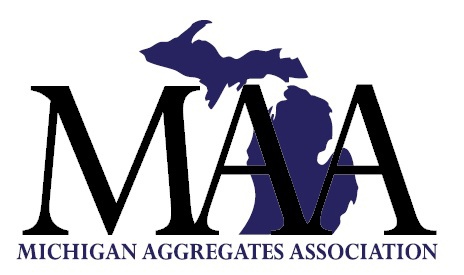Michigan Aggregates Association
Governor Whitmer’s Executive Order No. 2020-21 “Temporary requirement to suspend activities that are not necessary to sustain or protect life”

Let’s start this bulletin by stating that “Michigan’s aggregate mining industry including supporting industries are deemed critical infrastructure work and therefore should not stop production/support.”
As you are aware, this morning Governor Whitmer issued an executive order prohibiting in-person work and travel this is not necessary to sustain or protect life. The executive order takes effect March 24, 2020 at 12:01 am and continues through April 13, 2020 at 11:59am
Included in the executive order is the statement that businesses that employ critical infrastructure workers may continue in-person operations. The executive order states that activities performed by critical infrastructure workers include, but are not limited to, …, operations necessary to enable transactions that support the work of a business’s or operation’s critical infrastructure workers, …
For purposes of this order, critical infrastructure workers are those workers described by the Director of the U.S. Cybersecurity and Infrastructure Security Agency in his guidance of March 19, 2020 on the COVID-19 response. Such workers include some workers in each of the following sectors:
(a) Health care and public health.
(b) Law enforcement, public safety, and first responders.
(c) Food and agriculture.
(d) Energy.
(e) Water and wastewater.
(f) Transportation and logistics.
(g) Public works.
Aggregate as it relates to road and bridge industry is critical
The guidance put forth by the Director of the U.S. Cybersecurity and Infrastructure Security Agency dated March 19, 2020 on the COVID-19 response states that essential critical infrastructure workforce include those workers who support the operation, inspection, and maintenance of essential public works facilities and operations, including bridges, water and sewer main breaks, fleet maintenance personnel, construction of critical or strategic infrastructure, traffic signal maintenance, emergency location services for buried utilities, maintenance of digital systems infrastructure supporting public works operations, and other emergent issues.
MDOT has deemed that their road and bridge program is part of Michigan’s critical or strategic infrastructure. Therefore, since the aggregate industry is an essential supplier to the road and bridge industry the aggregate industry workforce falls under the critical infrastructure workforce.
Aggregate as it relates to the food and agriculture is deemed critical
Aggregate used for the producing of fertilizers and other substances used by the food and agriculture industry are deemed critical infrastructure workers. This directive is clearly stated in the guidance put forth by the Director of the U.S. Cybersecurity and Infrastructure Security Agency dated March 19, 2020 on the COVID-19 response. The guidance states that critical infrastructure employees are employees of companies engaged in the production of chemicals, medicines, vaccines, and other substances used by the food and agriculture industry, including pesticides, herbicides, fertilizers, minerals, enrichments, and other agricultural production aids.
While Governor Whitmer’s executive order may exempt the aggregate industry, employers are required to distinguish between which workers are critical infrastructure workers and required to show up to an actual workplace location and those workers that can work from home.
Executive order 2020-21 states, that businesses and operations must determine which of their workers are critical infrastructure workers and inform such workers of that designation. Businesses and operations must make such designations in writing, whether by electronic message, public website, or other appropriate means. Such designations, however, may be made orally until March 31, 2020 at 11:59 pm.
Executive order 2020-21 states that businesses and operations maintaining in-person activities they must adopt social distancing practices and other mitigation measures to protect workers and patrons. Those practices and measures include, but are not limited to:
(1) Restricting the number of workers present on premises to no more than is strictly necessary to perform the business’s or operation’s critical infrastructure functions.
(2) Promoting remote work to the fullest extent possible.
(3) Keeping workers and patrons who are on premises at least six feet from one another to the maximum extent possible, including for customers who are standing in line.
(4) Increasing standards of facility cleaning and disinfection to limit worker and patron exposure to COVID-19, as well as adopting protocols to clean and disinfect in the event of a positive COVID-19 case in the workplace.
(5) Adopting policies to prevent workers from entering the premises if they display respiratory symptoms or have had contact with a person who is known or suspected to have COVID-19.
(6) Any other social distancing practices and mitigation
Click here to view Governor Whitmer’s 2020-21 Executive Order
Click here to view the Memorandum on Identification of Essential Critical Infrastructure Workers during Covid-19 Response, U.S. Department of Homeland Security Cybersecurity & Infrastructure Security Agency Office of the Director Washington, DC, March 19, 2020
